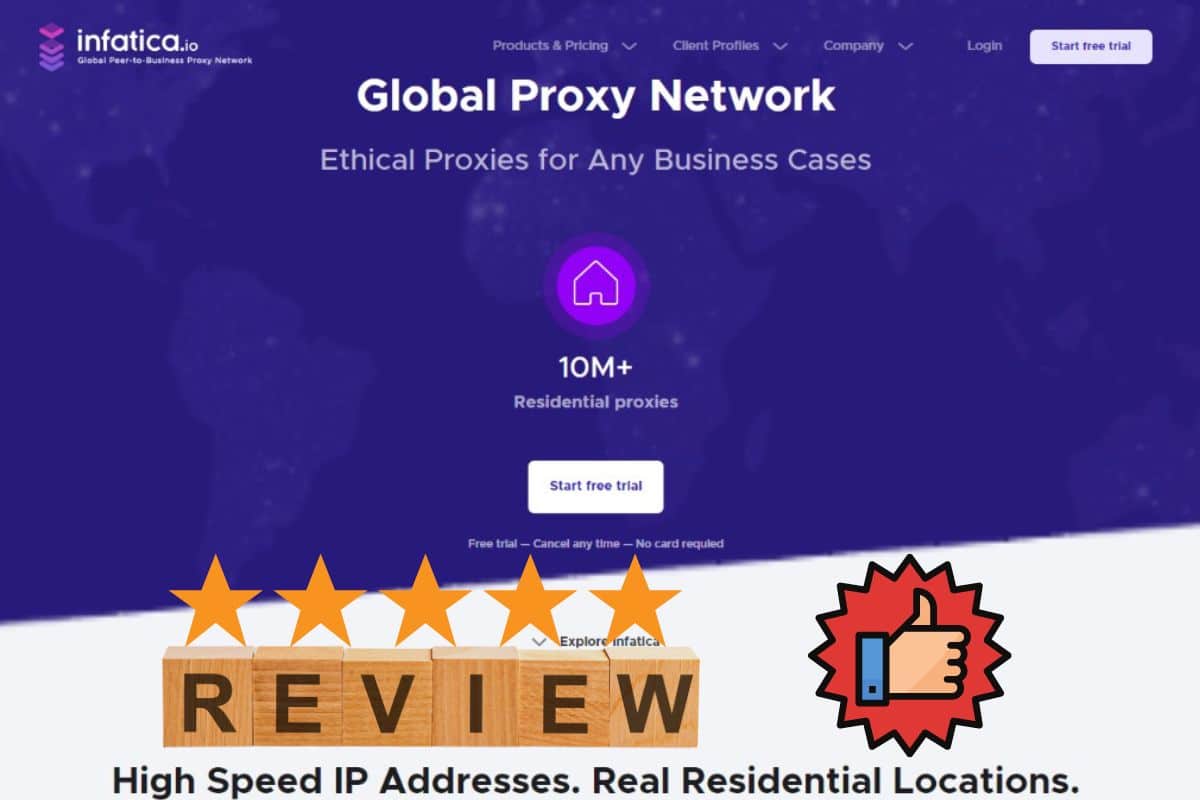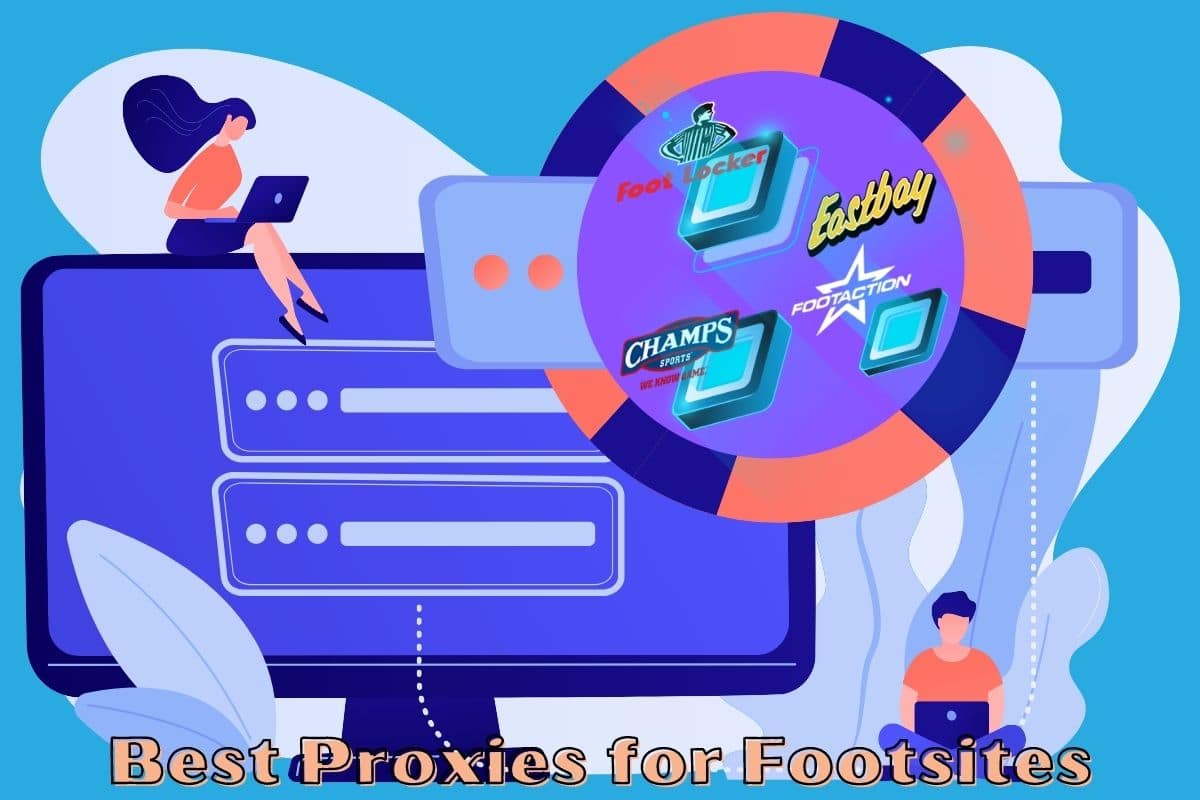We have a complicated relationship with free proxies. You never know who is in the middle between you and the web. You might think that a proxy survey is safe and will only make your connection secure. But often, this couldn't be further from the truth; using them is risky, yet as with all free things, the demand for them never dies off.
That's why I'm here to bring you a list of top proxy providers that offer free IP lists and providers that offer a safer option for free proxy plans. For those, the free lists are collected by scanning the web for computers with open connections and work best with web scraping tools, automation software, and other apps.
Of course, you can also use them solely for anonymity purposes. However, don't expect too much. Free list IPs are often slow and unstable and don't stay online for very long. Free proxy plans are safer but limited, so they work best for one-off tasks. Let's start with the free IP list providers.
Best Free Proxies
ProxyScrape

First up, ProxyScrape. This provider enables you to choose from three lists based on their protocol. Those are HTTP, SOCKS4, and SOCKS5. They range from 200 to 2000 IPs which isn't a lot. That's because proxy scrape updates the IPs every 5 minutes to filter out the dead. Once you can filter the list by speed location, anonymity level, and encryption status.
Unlike some other websites, ProxyScrape offers generous exporting options. You can download the filtered list to a txt file or use the provided API free of charge.
The downside is that you can't see the actual list before exporting it. And while frequent refresh times should ensure live IPs, you have no way to know if they'll stay online as there are no uptime metrics.
Freeproxy.cz

The second provider worth exploring is Freeproxy.cz. It's a long-standing and one of the most feature-complete proxy lists. It offers over 5000 IPs from more than 100 countries, of course.
Some of them only have a few addresses. Still, in major locations like the US, including hundreds, the website lets you filter proxies by protocol, location, and anonymity. You then receive 35 IPs per page with additional information about their response time, speed up time, and when they were last checked. You can sort each parameter.
The uptime metric is especially useful, as the IPs are checked infrequently every 6 hours.
Spys.one

Spys.one is another old timer that's still up and running. It offers one of the most extensive proxy lists. We've seen over 28 000 proxies in around 160 countries. The proxies are updated at different times. So some will be checked a few minutes ago, while others will have stayed there for over a year.
Spys.one lets you filter the IPs by parameters like protocol, anonymity, and location. It also includes smaller filters such as city, ASN, Squid, and Mikrotik proxies.
You have several ways to narrow down the IPs. You need the simplest one being tabs – at the top of the page. Each address has additional information, such as its latency up time and the date. It was checked despite its size and wealth of options.
Spys.one isn't the easiest proxy list to work with. While you can choose to show between 30 and 500 IPs, there's no pagination, so you're never sure how many addresses there are. Also, you can't really sort the columns, and you have no way to export the proxies in bulk. So, there's a lot of hand-picking involved.
HideMy.name

HideMy.name is a VPN provider that also offers a list of free proxies. It constantly has around 10 000 proxies in over 60 countries. To our surprise, Armenia, Belize, and Curacao were the main countries.
You can filter the list by location, protocol, and anonymity. The list also shows the IP's speed. And when it was updated, it's nice that you can have several toggles at once. For example, the list refreshes pretty frequently to include anonymous and elite addresses.
The newest proxies were updated a minute ago when we last checked. And the oldest ones were around four hours prior. The biggest issue is actually getting the list out of the website. You can export them multiple times, but only after paying $5. That's one way to monetize.
Razorproxy

Now let's move on to the providers that offer free proxy plans, and the first recommendation is Razorproxy. Though, it's a private proxy provider. Razorproxy does offer a completely free plan. The plan lets you access 40 000 shared datacenter IPs.
In the US, the provider's proxies will be faster and much more stable than any public address. In addition, they automatically rotate. So, you won't need to manage a proxy list by hand. We only wish it'd be a monthly and not a one-time deal.
With Razorproxy's free plan, you get 2GB of data without other limitations. Which is pretty generous. This will require filling in a form. If you enjoyed the service, you could upgrade to a paid plan once the traffic runs out.
Webshare

Webshare offers 10 static datacenter proxies from four different locations. These IPs are private, which ensures predictable uptime and performance. The provider gives you the option to rotate this list, though. I'm not sure how good that would be with so few IPs. The catch is you get 1GB of traffic per month with a max of 50 parallel threads.
Downsides of Free Proxy that You Should Know
There's No Such Thing As a Free Lunch

Setting up and maintaining proxies cost money, so why should they come for free, without any return? Someone is getting something out of it, and more often than not, it will be at your expense.
The Risks of a Free Proxy Server

First of all, Information Leaks. It is a known fact that free proxies come with various downsides, including but not limited to unclear origins and the difficulty of knowing who is between you and the web. You might think the proxy server is safe, and it will only make your connection secure. But a lot of the time, this couldn’t be further from the truth.
Figure out what you need! Some of the possible uses are for personal use, bypassing geographic content restrictions, running safe web searches, or ticket buying. One of these may be a good fit for your business, too, like with sneaker copping on social media accounts.
For example, most free proxy servers don’t allow connecting via HTTPS, which means that your connection won’t be encrypted. So, those free proxies can cost you an arm and a leg because Your usernames and passwords can get compromised; Your bank login or your credit card information can get stolen; All your actions on websites can become visible to 3rd parties; Hackers can monitor your connection and gather sensitive data.
But it’s not all. If you use free proxies, their owner can inject 3rd party data into websites you visit, both to HTML and Javascript code. Therefore, you'll get slower loading times, and malicious ads may show up where there shouldn’t be any. This can happen even with websites you trust and have visited many times before without proxies.
They’re Slow and Unstable

If cybersecurity risks don’t convince you to stay away from free proxy lists, maybe a more practical reason will be: They’re slow and unstable. If you’re searching for proxies, you need them to work, right?
Let’s say you’re copping sneakers, and time and time again, you can't seem to win any drops. Wouldn’t it be frustrating to waste the time and money that you invested into other expensive gear to come out empty-handed just because of poorly maintained free proxies? Maybe you’re not copping sneakers, but I’m sure you have something that annoys you when using proxies.





